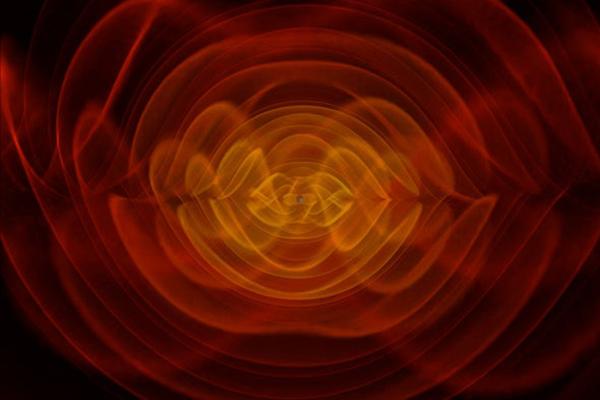August 15, 2019
The Future of Gravitational Wave Astronomy

Leading experts, including Nobel Prize Winner Rai Weiss and OSU's very own John Beacom among others, discuss the future and far future of gravitational wave astronomy from upgrading LIGO to larger ground-based detectors such as The Einstein telescope and The Cosmic Explorer to spaced missions such as LISA, DECIGO, and the Big Bang Observer.
News Image:
A simulated view of gravitational waves rippling out from merging black holes. The reddish waves correspond to those recently detected from a real black-hole merger by the Laser Interferometer Gravitational-wave Observatory (LIGO). Credit: NASA, C. Henze
